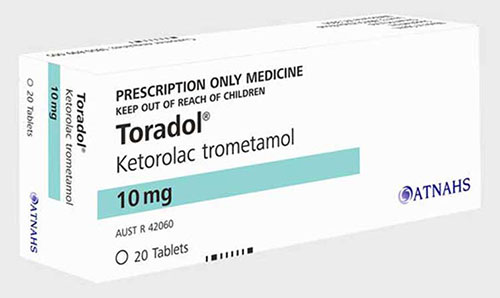At St. Lawrence Dentistry, Dr. Hawryluk frequently prescribes medications to manage dental discomfort, ensuring patients experience minimal pain during recovery.
Two common medications we prescribe are Advil and Toradol. Both effectively relieve pain, but they have distinct characteristics that make them suitable for different types of dental discomfort.
What is Advil?
Advil, known generically as ibuprofen, is a nonsteroidal anti-inflammatory drug (NSAID). It works by reducing hormones that cause inflammation and pain in the body. Advil commonly relieves mild to moderate pain, including dental pain, headaches, muscle aches, and arthritis.
Key Characteristics of Advil:
- Over-the-Counter – Advil remains widely available without a prescription, making it accessible for immediate pain relief.
- Anti-inflammatory – It reduces inflammation, which benefits conditions like swollen gums or post-surgical swelling.
- Duration – Advil typically provides pain relief for four to six hours.

What is Toradol?
Toradol, known generically as ketorolac, is also a nonsteroidal anti-inflammatory drug (NSAID) but is more potent than Advil. Toradol manages short-term moderate to severe pain, often in a post-surgical setting.
Critical Characteristics of Toradol:
- Prescription-Only – Toradol requires a prescription and is usually administered in a clinical setting or as prescribed by a healthcare provider.
- Potency – It is significantly stronger than Advil, making it suitable for more intense pain.
- Duration – Toradol relieves six to eight hours, which can be particularly helpful after dental surgeries or procedures.
Similarities Between Advil and Toradol:
- Class of Drug – Advil and Toradol are NSAIDs, meaning they work by inhibiting the enzyme cyclooxygenase (COX), which produces prostaglandins (substances that mediate inflammation and pain).
- Pain Relief – Both medications effectively relieve pain and reduce inflammation.
- Side Effects – Both can cause similar side effects, such as gastrointestinal issues, increased risk of bleeding, and potential kidney effects if used long-term or in high doses.
Differences Between Advil and Toradol:
- Potency – Toradol is much stronger than Advil and is used for more severe pain. Advil is suitable for mild to moderate pain.
- Availability – Advil is over-the-counter, while Toradol requires a prescription and is administered in a clinical setting.
- Usage Duration – Toradol is prescribed for short-term use (no more than five days) due to its potency and potential side effects. Following dosage instructions, Advil can be used for more extended periods as needed.
When Does Dr. Hawryluk Prescribe Each?
- Advil – Dr. Hawryluk may recommend Advil for managing mild to moderate dental pain, such as discomfort from minor dental procedures, toothaches, or mild inflammation.
- Toradol – Dr. Hawryluk prescribes Toradol for more severe dental pain, such as post-operative pain following significant dental surgeries or procedures requiring stronger pain relief.
Conclusion
Understanding the differences and similarities between Advil and Toradol can help you better manage your dental discomfort. Always follow Dr. Hawryluk’s instructions when taking these medications, and never hesitate to reach out to St. Lawrence Dentistry if you have any questions or concerns about your pain management plan. Our priority is to ensure your comfort and well-being throughout your dental care journey.
For more information or to schedule an appointment, please contact us at St. Lawrence Dentistry. We are here to help you achieve a healthy, pain-free smile.
- St. Lawrence Dentistry Looks Forward To St. Patrick’s Day! - March 12, 2025
- Understanding Dental X-Rays and Radiation: What You Should Know - January 13, 2025
- Happy New Year from St. Lawrence Dentistry! - December 30, 2024











